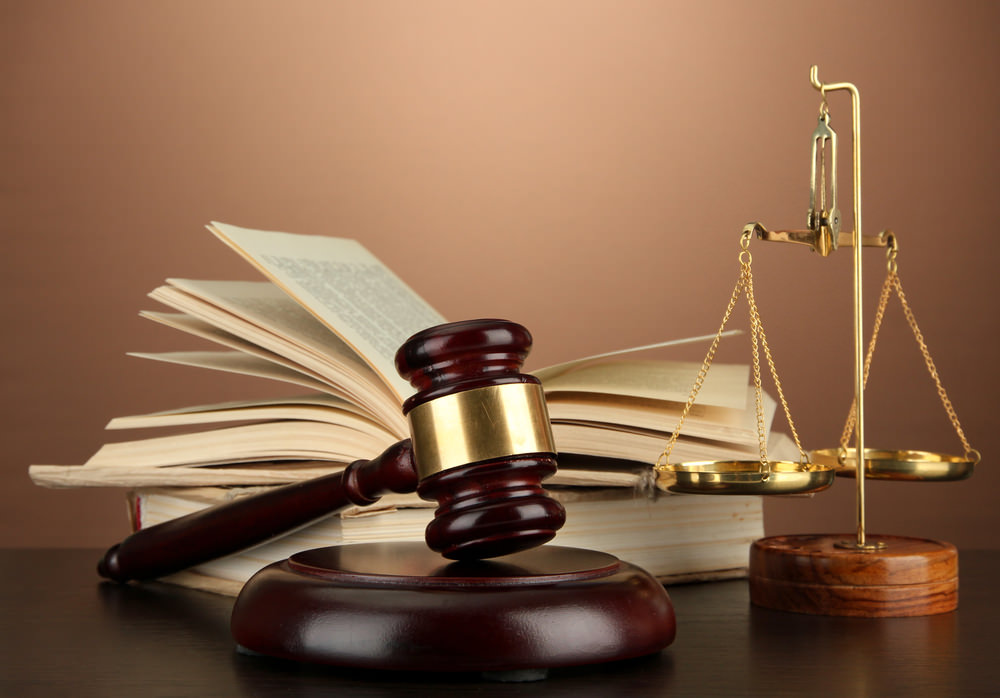Name of the Case: State vs. Chief Editor Manabjamin 57 DLR 2005
High Court Division (Criminal Miscellaneous Jurisdiction)
Case No. 6506 of 2000 with 6722 of 2000
Judges: Sayed Amirul Islam J, AKM Shafiuddin J
Fact:
On 16th September, 2000 ‘The Daily Manabjamin’ published a news on ‘Janata Tower Case’ under the caption “ “. The defendant of this case HM Ershad, a former President of Bangladesh, was talking with a judge conducting the case over phone. The phone call was taped by one of the close ally of Ershad and somehow reached the media. The Daily Manabjamin published an exaggerated and fabricated news in the format of a fairytale under the heading “একটি রাজকীয় কেলেঙ্কারির খসড়া “.The report was a fairytale where the King being the wrongdoer tried to bribe the Kazis(Judges) for reducing his sentence. Later on it was seen that, the Kazis coming under the pressure of higher executive authority could not reduce the king’s sentence rather increased it to a certain extend and also returned a portion of bribe to the king which he gave them earlier. The news caught the sight of Attorney General, he filed an application enclosing a copy thereof, to the Registrar of the Court to bring the same to the notice of the learned Chief Justice. The Attorney General then contended that the story speaks of the executive interfering with the administration of justice. Chief Justice thereafter referred the matter to the High Court Division. Then the High Court issued a rule upon the Reporter, Writer , Chief Editor, Printer and Publisher of the Daily Manabjamin. Similarly, High Court issued rule against the three newspapers i.e. The Daily Janakantha, The Daily Ittefaq and the Daily Sangbad for publishing similar reports referring to Manabjamin. However, Justice Naimuddin was sought to be ruled against for his harsh criticism of Apex Court based on the aforesaid Manabjamin report, in a seminar.
Judgment:
The Court held the alleged contemner, the Chief Editor, the Reporter, Writer, Printer and Publisher of Daily Manabjamin convicted for contempt of Court. Also the Court found HM Ershad guilty for interfering with the due course of justice.
The court disposed of other three newspaper and Justice Naimuddin Ahmed while the newspapers were warned and in reply to the harsh criticism of J Naimuddin Ahmed the court noted an observation: “Justice is not hubris; power is not petulance and prudence is not pusillanimity, especially when judges themselves are prosecutors and mercy is a mark of strength and not whimper of weakness. The courts always ignore by a majestic liberalism trifling and venial offences– the dogs may bark, the caravan will pass.”
In his affidavit-in-opposition, HM Ershad stated that he ought not have talked with the learned judge about his case though he had done so innocently and without any ill motive. In response to Ershad’s defensive statements the HCD trumped it saying, “In determining the effect of the consideration in deciding whether a contempt was committed.”
Sentence: The court gave Matiur Rahman Chowdhury, the reporter, writer and Chief Editor of Daily Manabjamin simple imprisonment for one month and to pay fine of taka 2000 within 2 months, in default simple imprisonment for a further period of 15 days.
Mrs. Mahbuba Chowdhury, the printer and publisher of Daily Manabjamin is sanctioned with 2000 taka fine in default to undergo simple imprisonment for 2 days.
And for the gravity of offence committed by HM Ershad, the court sentenced him to suffer simple imprisonment for 6 months and also to pay a fine of taka 2000 within 2 months, in default to undergo simple imprisonment for a further period of 1 month.
Impact & Significance:
This case was one of the first of its kind in Bangladesh as it involves so many newspaper at a time. The power of taking action against contempt of court is given and authorized by the constitution itself yet courts rarely use this power unless there is a gross disobedience and disrespect to court. In this case, the contempt of court was so much grave that the court said in judgment: “One cannot think of grater harm and obstruction to the administration of justice than this.” For this reason Court took action those huge entities.
The allegation against the judges showed Daily Manabjamin report was false. It scandalize the court by saying judges take bribe for reducing punishment. This type of false allegation creates a serious negative impression on citizens mind. People will lose their trust on judiciary if court let those contempt happening. Ti is really necessary that courts must be kept as a symbol of justice and purity to the citizens for establishing rule of law in the society and ensuring justice to everyone.
Firstly, Manabjamin has scandalized the court by twisting the facts of the taped conversation. They create a fake story out of pure imagination and by doing so presented the courts and the judges wrongly and dishonestly to the public.
Secondly, the other newspaper followed the report of Daily Manabjamin and publish similar reports. They didn’t care about hoe their report will contempt the court and effect the administration of justice.
Thirdly, HM Ershad tried to interfere the due course of justice by calling a judge and tried to reduce his punishment.
All those things pose a great threat to the dignity, majesty, honor, nobility and prestige of the court, point black finger against the independence of judiciary, disrupts the administration of justice . If let unchecked and unpunished this sort of contempt will greatly harm the purpose of judiciary and and by doing so will destroy the rule of law in the country.
That is why this case holds such importance and significance as it shows that no matter how powerful one can be, he is also bound by law and can’t just walk away disobeying the law.
An observation that can’t be overlooked:
One can argue that as the freedom of expression is granted by the constitution he/she can express anything he/she wants. People have a right to criticize and express their opinion. This freedom of speech and expression and press is granted by the Article 39 of the constitution. But the same article put a bar of restriction by saying: “subject to any reasonable restriction impose by law in the interest of the security of the state, friendly relations with foreign state, public order, decency or morality, or in relation to contempt of court, defamation or incitement to an offence-“
And Article 108 authorize The High Court Division to use this power, “The Supreme court shall be a court of record and shall have the powers of such court including the power subject to law to make an order for the investigation of or punishment for any contempt of itself.’
But why this restriction? Is the dignity of court more important than the freedom of expression in this democratic country??
The key answer is ‘Balance’. For building a true democratic and peaceful country, to establish rule of law in the country, both the freedom and expression and the dignity of court have to co-exist in a symbiotic relation. That is why the judges have to be careful and wise in using this unique and extraordinary power and others have to be cautious while criticizing and not to scandalize a court and disrupting the due course of law and administration of justice. There must be a balance between them. Only in this way rule of law will established in the society and justice for everyone will be ensured.
Concluding Remarks:
Surely this case is an bright example of holding up the dignity of the court and a powerful reminder to everyone that, no matter how powerful someone thinks he is, he must follow the path of ensuring justice.




